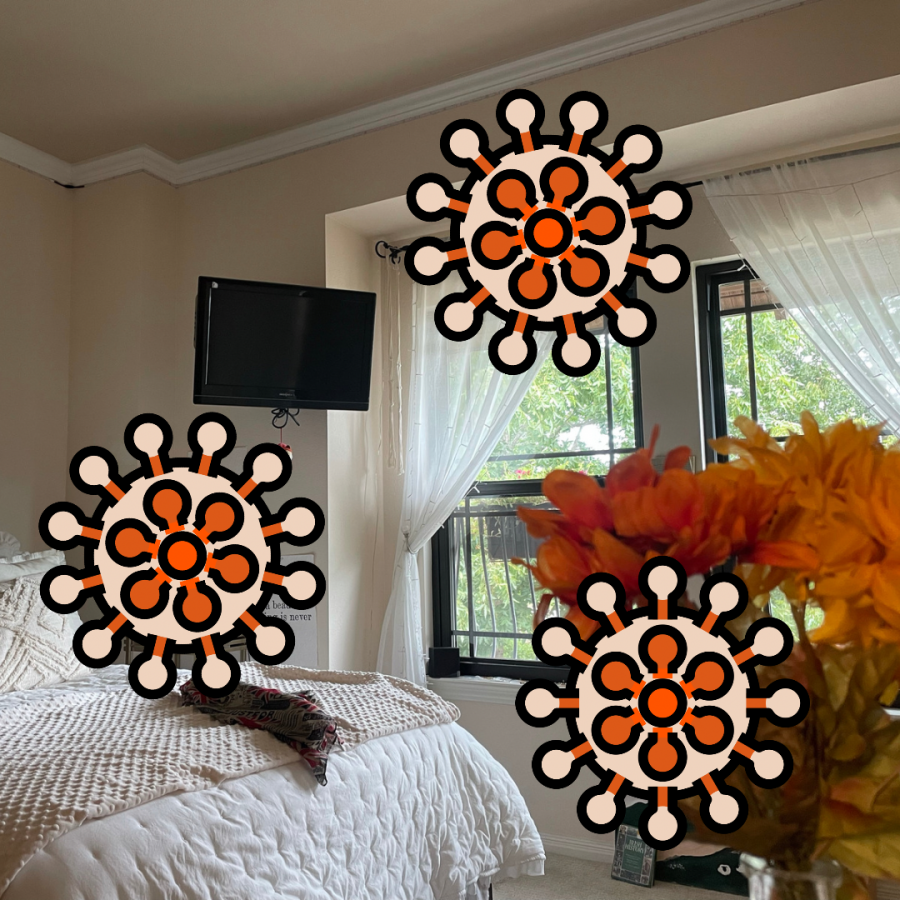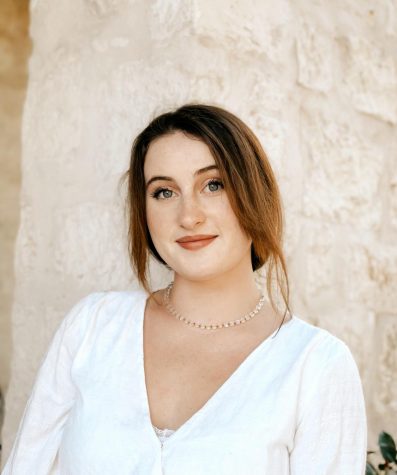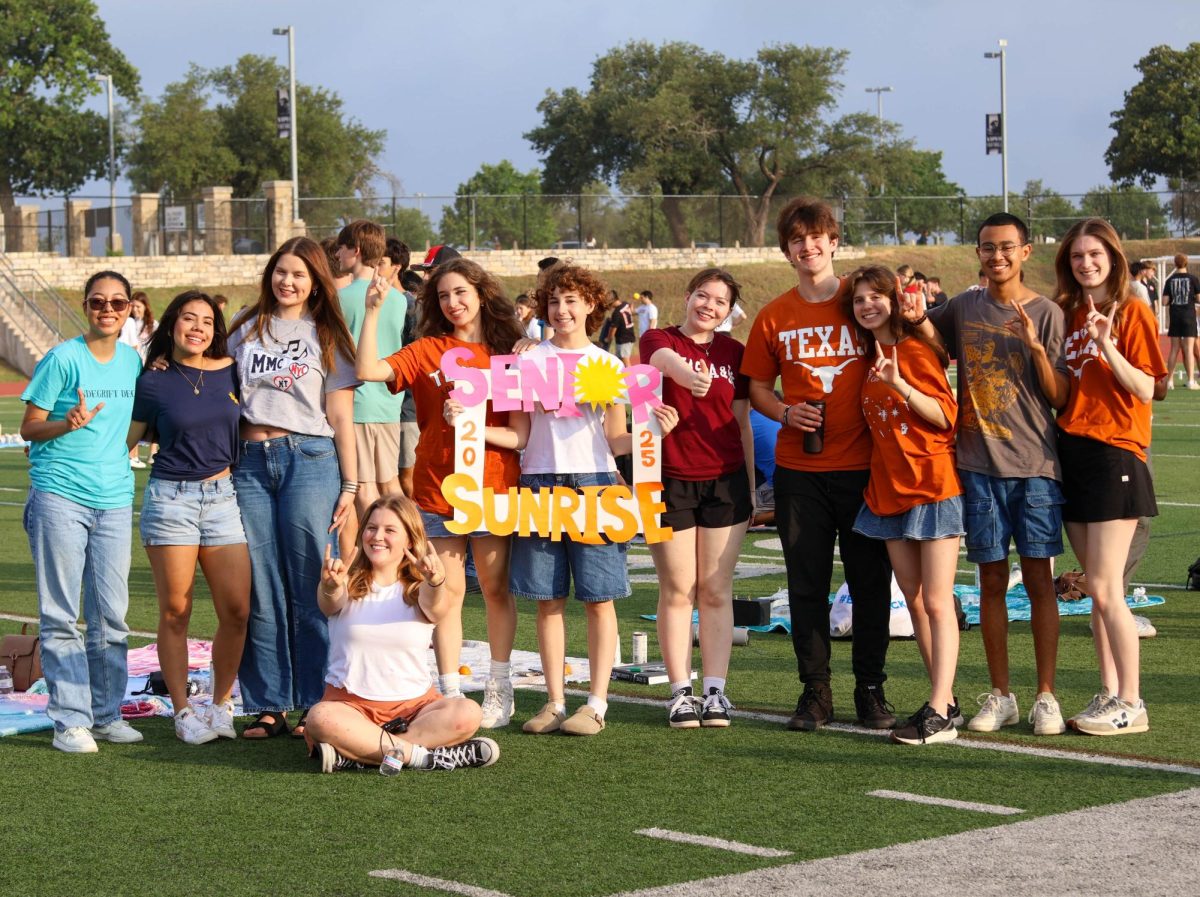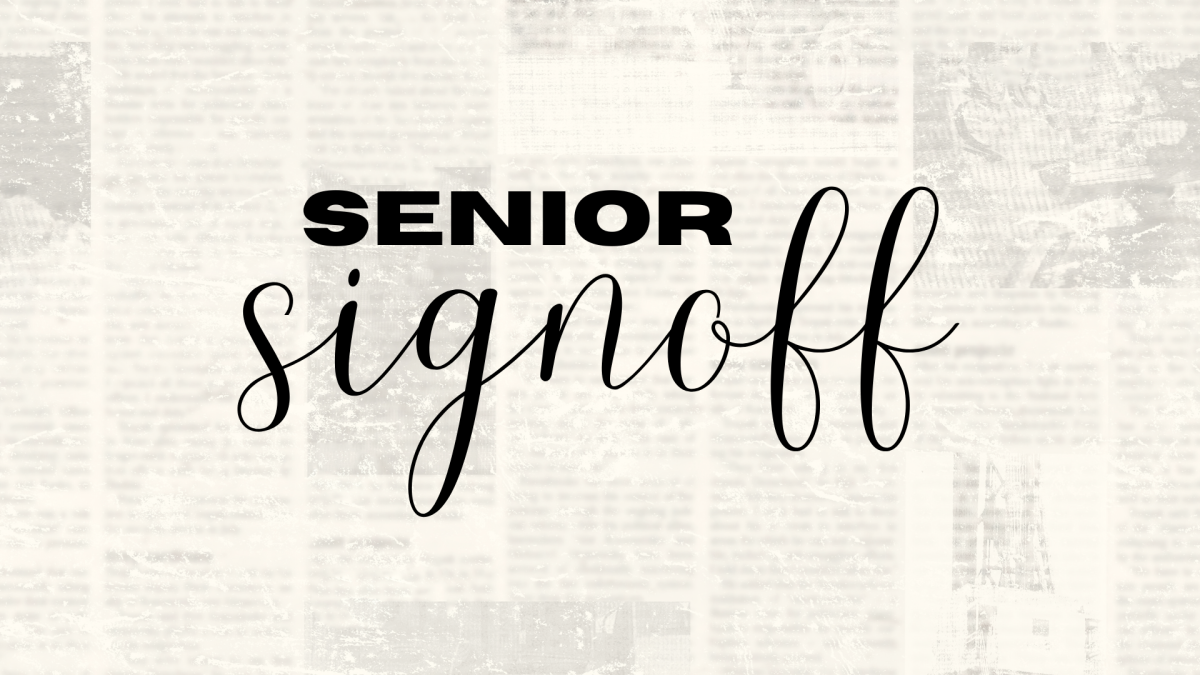“Positive” start
My journey with COVID-19 during the first two weeks of school
Time alone in my room gave time for positive thinking.
August 24, 2021
The situation last week was not ideal, to say the least. As many of my peers returned to classes in person, saw their old friends, chose seats at the classroom tables, made first impressions on teachers, figured out the best walking paths to avoid traffic and learned, I sat in my room with a cough and a headache. I sat in my room with COVID-19.
I’ll paint for you a picture: it’s Wednesday, Aug. 11 and you have returned home from CVS, an at-home test kit in hand. You’ve spent the whole day convincing yourself that it’s just allergies; mold and ragweed were high according to KVUE. But a large group of your friends were planning on playing volleyball later that evening, so you decide–for your safety and theirs–to just do a test. And on that night, Wednesday, Aug. 11, the night before school was supposed to start, you test positive for COVID-19.
That was the predicament I found myself in a little over two weeks ago. After that, I spent the first, second, third and so forth days of school in my room, emailing teachers and asking for patience and assignments. But with my family, friends and a positive mindset holding me up, the first two weeks of school were not unbearable.
As I’m sure you know by now, schools are not immune from the pandemic. As terrifying as that is to face, my hope for this article is that if you happen to find yourself in my situation at some point during this school year, you’ll be reassured that you’re not alone and can develop some tools for forming a positive mindset about it. A disclaimer is necessary, however, as everyone’s experience with COVID-19 is different. My story may be different from yours. I just hope that reading about how I got myself through this situation will arm you with the mental medicine you might need.
I’ll take you back to the first day of school. This was the second day in my COVID-19 journey and I was feeling it–hard. I had a cough that would not cease, a headache that hurt, and a sleepiness that struck me with a deep urge to just stay in bed and stay asleep. So I listened to my body–I stayed in bed and gave myself a day of rest before emailing teachers, employers, friends, etc. This, in my non-medical opinion, did wonders for me. When I awoke on Friday, I felt refreshed, even if the symptoms of COVID-19 had not yet begun to wear off. I quickly set about emailing apologies to teachers and friends when I realized that my account was deactivated because I had not attended the first day of school in person. That ordeal was annoying, for obvious reasons as I had to communicate with teachers through my personal email, but the issue was soon resolved and I was able to log into Google Classrooms, Reminds and online textbooks.
When the scampering for school work had ended, I was left with a few finished “Get to Know You” assignments and a head full of more questions and upsetting thoughts. After sleeping on the first day of school and fixing technical issues on the second, I had that weekend in between with nothing to do but think–which was dangerous for an overthinker like myself.
Did my friends save me seats at the classroom tables? Will they welcome me back with open arms? Or did they realize that they had more fun without me? Am I missing out on any new inside jokes? Those were the questions surrounding my social life, never mind the ones that circled my head about my physical and educational health. I knew that dwelling on those thoughts and fake scenarios would do a world of nothing good for me, so I made a rule soon after I thought them: think the opposite.
It sounds so blatantly obvious it’s almost condescending. But for each question that arose, the process to turn it around was difficult and took a lot of convincing. The one I focused most on was whether or not my friends would miss me. Instead of thinking of how they may be annoyed by my “homecoming,” I thought of the celebrity treatment I’d receive when I returned. I pictured them being happy to see me again and convinced myself that this was the more likely scenario. I pictured all the things I had to look forward to now: football games, going deeper into AP European History, weekend get-togethers, having a separate first impression on teachers.
I forced myself to think positively.
I know how hard that mental struggle might be, but if you contract COVID-19 during the school year, you should focus on getting better physically. I did not allow those evil thoughts to take reign over my physical recovery. I focused on the good instead. That being said, your positive thoughts may look different from mine, but find them nonetheless. They’re there, I promise–there is always a light at the end of the tunnel.
In regard to school work, do not stress. The teachers at Vandegrift–as much as high school students love to complain about them–truly care for you and are incredibly supportive and understanding of the situation. They will email you homework if it isn’t on their Google Classroom, set up Zoom meetings to catch you up, and wish you well on your recovery. My teachers did all of that and more, so if you’re reading this, thank you.
My journey with COVID-19 is just now wrapping up as I write this article, and I am very ready to get back to school. I thank my forceful positivity for that. Instead of dreading unlikely scenarios, I am looking forward to being reunited with people and subjects I love. Again, I must reiterate that everyone at Vandegrift wants and knows how to support you.
Stay positive, Vipers, not “positive.”







